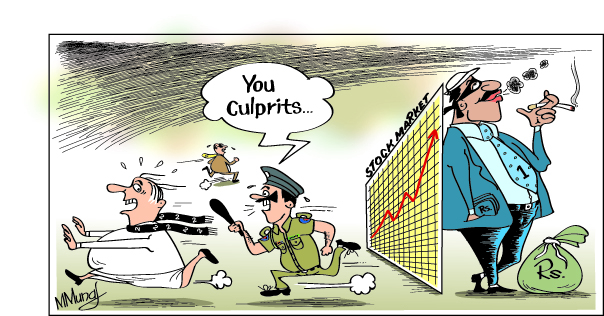(Reuters) - Sri Lankan shares ended steady on Monday, hovering near their more than six-week closing high hit in the previous session, while investors waited for cues on the political front as the country's parliament started a two-day debate on proposed constitutional reforms.
Investors have been cautious due to political uncertainty as Prime Minister Ranil Wickremesinghe's party does not have a majority in the parliament and President Maithripala Sirisena promised to dissolve the parliament after the end of his 100-day programme on April 23.
The passage of reform measures, including establishing independent police, judiciary, and election and public service commissions, is seen as a test for President Maithripala Sirisena's government.
The main stock index ended 0.07 percent, or 4.66 points, weaker at 7,125.12, hovering near its highest close since March 10 hit on Friday. It has gained 3.25 percent since the central bank cut key rates on April 15 through Monday, while yields on t-bills have fallen 37-48 basis points since then.
"Political stability is the main concern. Many (investors) are waiting to see the outcome of the debate and when the parliamentary elections will be," said Reshan Wediwardana, research analyst at First Capital Equities (Pvt) Ltd.
The parliament on Monday started the two-day debate on constitutional reforms.
Some analysts said the markets would stay volatile until parliamentary elections are announced.
The market saw a net foreign inflow for the first time in four sessions. Foreign investors were net buyers of 149.3 million rupees ($1.12 million) worth shares, extending the net foreign inflow so far this year to 3.78 billion rupees.
Turnover was 670.3 million rupees, compared with this year's daily average of around 1.07 billion rupees.
Analysts said the market could be dull until the perception on political uncertainty is addressed and many investors were in a wait-and-watch mode before the parliamentary elections.
Shares of Ceylon Brewery Plc fell 5.44 percent, while DFCC Bank Plc dropped 0.37 percent. Diversified conglomerate Hayleys gained 2.56 percent.
The index lost 6.6 percent last month, its biggest monthly drop since October 2012, as investors sold holdings to settle margin trades amid concerns about political stability and a rise in interest rates.
Investors have been cautious due to political uncertainty as Prime Minister Ranil Wickremesinghe's party does not have a majority in the parliament and President Maithripala Sirisena promised to dissolve the parliament after the end of his 100-day programme on April 23.
The passage of reform measures, including establishing independent police, judiciary, and election and public service commissions, is seen as a test for President Maithripala Sirisena's government.
The main stock index ended 0.07 percent, or 4.66 points, weaker at 7,125.12, hovering near its highest close since March 10 hit on Friday. It has gained 3.25 percent since the central bank cut key rates on April 15 through Monday, while yields on t-bills have fallen 37-48 basis points since then.
"Political stability is the main concern. Many (investors) are waiting to see the outcome of the debate and when the parliamentary elections will be," said Reshan Wediwardana, research analyst at First Capital Equities (Pvt) Ltd.
The parliament on Monday started the two-day debate on constitutional reforms.
Some analysts said the markets would stay volatile until parliamentary elections are announced.
The market saw a net foreign inflow for the first time in four sessions. Foreign investors were net buyers of 149.3 million rupees ($1.12 million) worth shares, extending the net foreign inflow so far this year to 3.78 billion rupees.
Turnover was 670.3 million rupees, compared with this year's daily average of around 1.07 billion rupees.
Analysts said the market could be dull until the perception on political uncertainty is addressed and many investors were in a wait-and-watch mode before the parliamentary elections.
Shares of Ceylon Brewery Plc fell 5.44 percent, while DFCC Bank Plc dropped 0.37 percent. Diversified conglomerate Hayleys gained 2.56 percent.
The index lost 6.6 percent last month, its biggest monthly drop since October 2012, as investors sold holdings to settle margin trades amid concerns about political stability and a rise in interest rates.
($1 = 132.9000 Sri Lankan rupees)
(Reporting by Ranga Sirilal and Shihar Aneez; Editing by Subhranshu Sahu)
